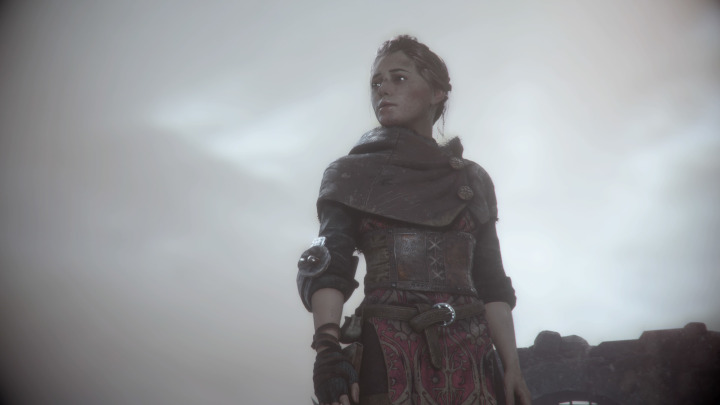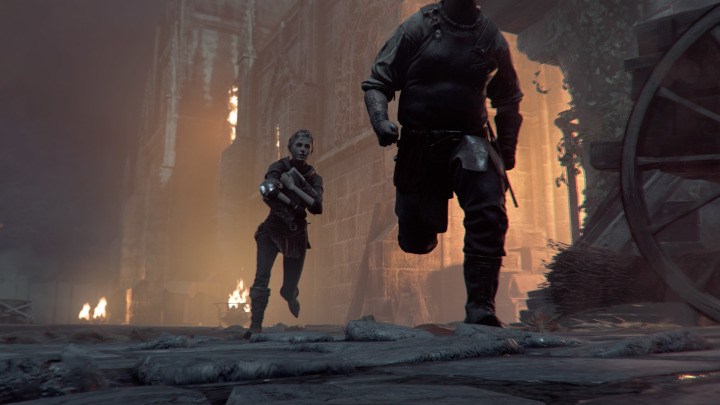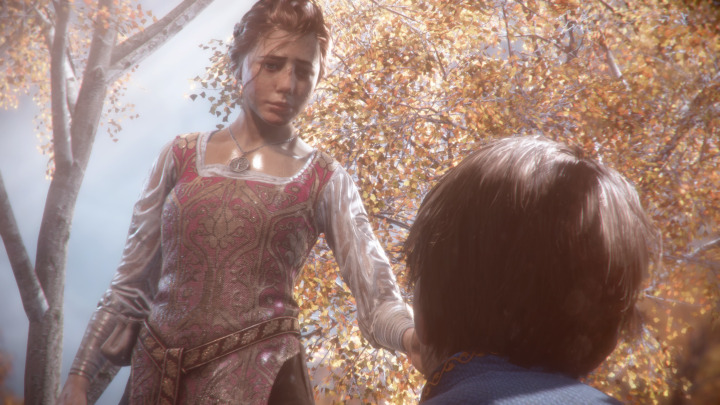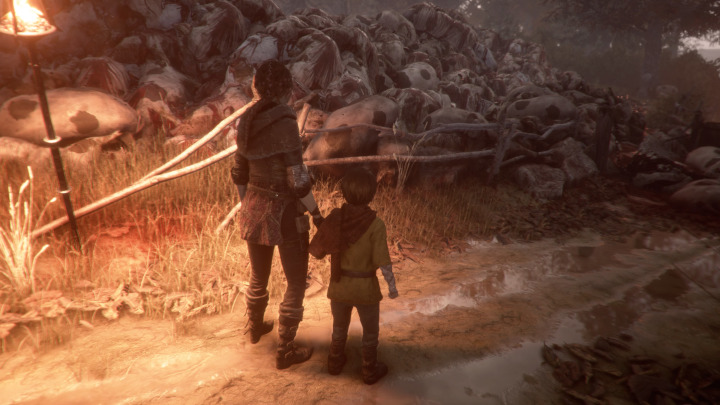
The hotly anticipated A Plague Tale: Requiem is finally here, and it’s getting rave reviews. In fact, here at Half-Glass Gaming, we’re considering this as a 2022 Game of the Year nominee. It’s an astonishingly brilliant take on the linear, narrative-focused games that were all the rage back in the late PS3 era (with more than a few passing similarities to The Last of Us).
This is also a direct sequel to 2019’s A Plague Tale: Innocence. With that in mind, should you play Innocence before jumping into Requiem, or will you be perfectly fine starting with Requiem?
Well, I think both of those things are true: You can probably enjoy Requiem as a standalone game, but you really should play Innocence first anyway.
A Plague Tale: Innocence is a goddamn masterpiece. I’d been meaning to play it ever since it came out (in fact, I believe I might have turned down a review copy in 2019 because I was busy with other stuff at the time). Finally, in anticipation for Requiem, I blasted through it over the course of two days, and I could not tear myself away from it. The first night, I was up until 5 a.m. playing it, and I only stopped because I was genuinely too tired to continue. Innocence is a beautiful, tragic, bleak game that’s really, really hard to put down once you’ve picked it up. Yes, it jumps the shark in the second half, but it remains compelling through its entire journey.

It’s also not that long. In a world of 60-hour-plus open-world games, Innocence‘s ten-hour runtime feels almost quaint. (To be fair, it took me about 14 hours to see the final set of credits roll — yes, there is a post-credits chapter, so there are two sets of credits). So if lack of time is the only reason you’re hesitant to pick up the original, don’t fret; you’ll get through it pretty quickly.
This linear, stealth-based narrative game will introduce you to an alternate version of 14th Century France where a plague is wiping out entire communities and piles of bodies are being devoured by tidal waves of rats. These things — the plague and the rats — are connected in ways you probably aren’t expecting, and the mysterious disease suffered by the five-year-old Hugo de Rune is yet another piece of this puzzle. Sure, it will probably all start to make sense once you’re several hours deep into Requiem, but Innocence lays it all out in a really satisfying manner over the course of its runtime, preparing you for the knife twists of the sequel.
And on top of that, Innocence features some really great character drama, establishing the relationships between its small cast of characters. I feel like someone who jumps straight into Requiem might feel a little bit lost by, say, the character of Lucas, an orphan who was befriended by the game’s protagonists early on in Innocence. Lucas is a strange kid, and Requiem never really explains his relationship to the rest of the crew (aside from one or two subtle lines of dialogue). You might get pretty deep into Requiem before you realize that no, Lucas actually isn’t officially part of the de Rune family.

Also, if you play through the first ten minutes of Requiem, you’re going to already have a pretty good idea of who makes it out of Innocence and who doesn’t. So if you have any desire to play Innocence without spoilers, you should play it before Requiem.
But that doesn’t mean this is a perfectly smooth transition. Character models look way different in the sequel, so it might take you a little bit to get used to the new look if you jump immediately from Innocence to Requiem (like I did).
And there’s one super weird thing that kind of bugs me as someone who binged these games back-to-back: protagonist Amicia de Rune forgets all of the alchemy that Lucas taught her in the first game, and this is handled super awkwardly in Requiem‘s narrative. Instead of Amicia being like, “Hey Lucas, I forgot how to make Ignifer,” she completely forgets that she ever made any at all, even though crafting Ignifer is a hugely important thing you’re going to do a lot of in Innocence. When Lucas teaches her how to craft it in Requiem, she has this sort of distant recollection, like, “Oh yeah, this was a thing I did a long time ago,” even though it’s only been six months. I can believe that if she hasn’t crafted Ignifer in six months, she might need a refresher, but I don’t buy the fact that she’d completely forgotten ever having done it in the first place.
These small quibbles aside, Requiem builds a fantastic and heart-smashing narrative on top of the also-fantastic and heart-smashing narrative foundation of Innocence. I can’t even imagine trying to enjoy Requiem without having played Innocence, if I’m being completely honest.

That said, I think you could totally play Requiem on its own. You won’t get all the references, it’ll take you a little longer to familiarize yourself with this strange world, and you’ll completely spoil some of the best parts of Innocence, but it won’t be as disorienting as, say, starting the Metal Gear franchise with Metal Gear Solid 4. So if that’s how you want to do this, then go for it. Just don’t say I didn’t warn you…